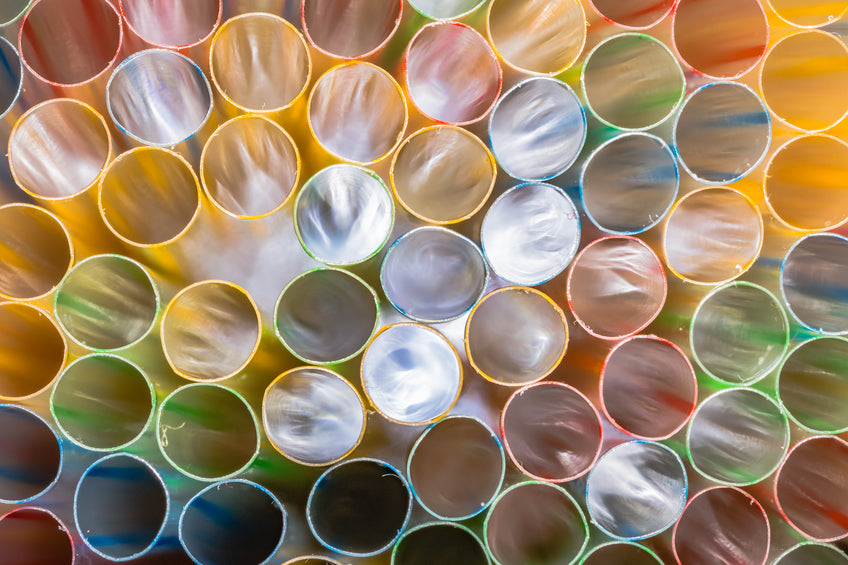Americans use over 500 million plastic straws every day yet seldom stop to think about the impact this single-use product has on our environment. Plastic straws, which are too small to be recycled, often wind up in our oceans. In fact, they’re among the top 10 items found during beach cleanups around the world. In the water, the fossil fuel derived materials used to make them breaks down into smaller pieces called microplastics, which pollutes the water with toxins and threatens seabird and marine life.
Birds and marine life mistake these small particles of plastic as food. An estimated 71% of seabirds and 30% of turtles have been found with plastics in their stomachs, which lowers their mortality rate by half. Plastic straws can be toxic to people too. Sipping a hot beverage from a plastic straw causes polypropylene and BPA to leak into the liquid. These endocrine disrupting chemicals can produce developmental, reproductive, neurological and immune effects in humans.
We each must do our part to reduce plastic pollution and refusing a single-use straw is one of the easiest ways to take immediate action.

It’s recently been discovered that the “Pacific Garbage Patch” has grown to twice the size of Texas. Floating near the midpoint between California and Hawaii, the current drives and traps this gigantic hunk of floating trash to encompass 600,000 square miles of ocean. Estimated to hold 1.8 trillion pieces of plastic, it’s believed that it contains 88,000 tons of plastic. There are four other trash collections in the world's oceans, with the Pacific Garbage Patch being the largest.
Campaigns like Rise Above Plastics, The Last Straw, Stop Sucking and others are making a huge impact with a simple message… say no to plastic straws. It’s great to see many households, hotel chains, restaurants and even entire cities across America and the world banning single-use plastic straws.
Still, a lot of people depend on straws for their survival. Those with swallowing or oral issues, facial palsy, injuries or disabilities, Parkinson’s disease, the elderly, kids, etc. Fortunately, there are more and more eco-friendly options available like glass, stainless steel, and bamboo straws. For those with difficulties controlling their bite, such as with Parkinson’s, metal and glass straws can be dangerous. And, of course, they don’t tolerate hot drinks well.
 Whether you just like using straws or your life depends on them, reusable organic bamboo straws are an ideal choice instead of plastic. Solid and durable, straws made from organic bamboo are grown without the use of chemicals or pesticides and contain absolutely no dyes or inks. They’re perfect for hot or cold beverages and eliminate the possibility of ingesting harmful chemicals.
Whether you just like using straws or your life depends on them, reusable organic bamboo straws are an ideal choice instead of plastic. Solid and durable, straws made from organic bamboo are grown without the use of chemicals or pesticides and contain absolutely no dyes or inks. They’re perfect for hot or cold beverages and eliminate the possibility of ingesting harmful chemicals.
Bamboo straws are planet safe, since they are made entirely from nature, and cause no negative effects on sea life nor our oceans waters. Plus, they’re just more fun to drink from!
Watch for, “The Ultimate Buying Guide to Bamboo Drinking Straws” coming soon!





